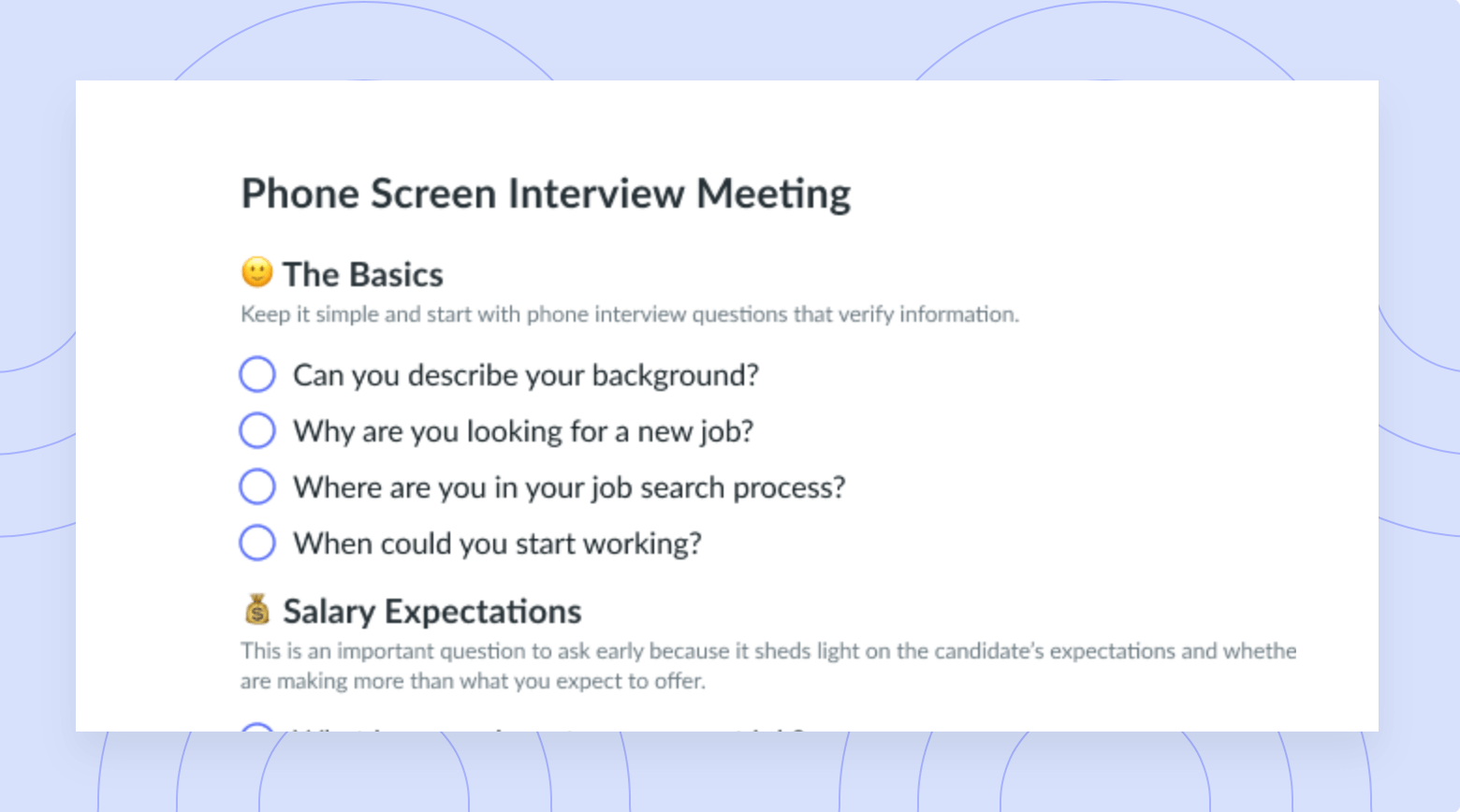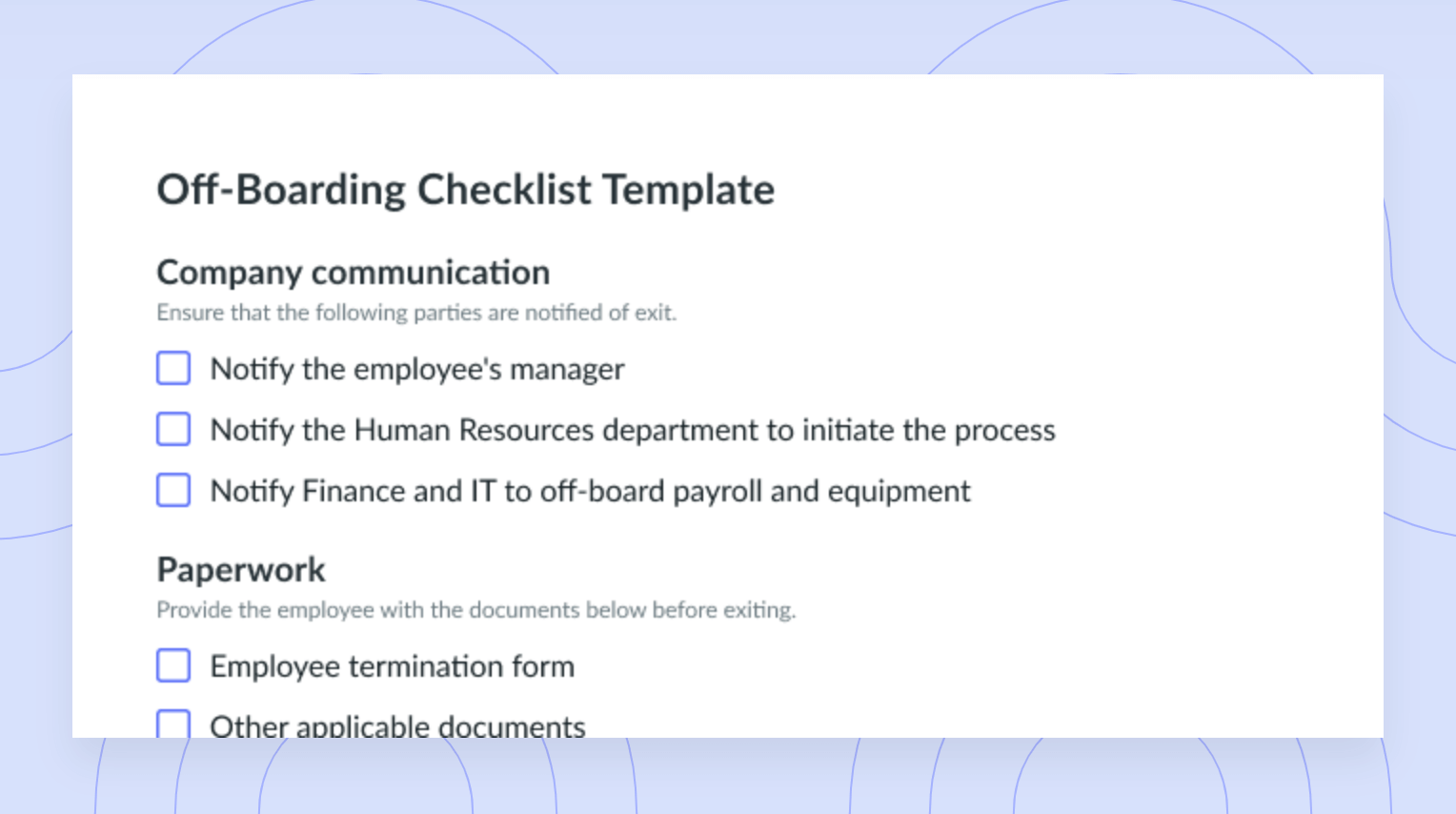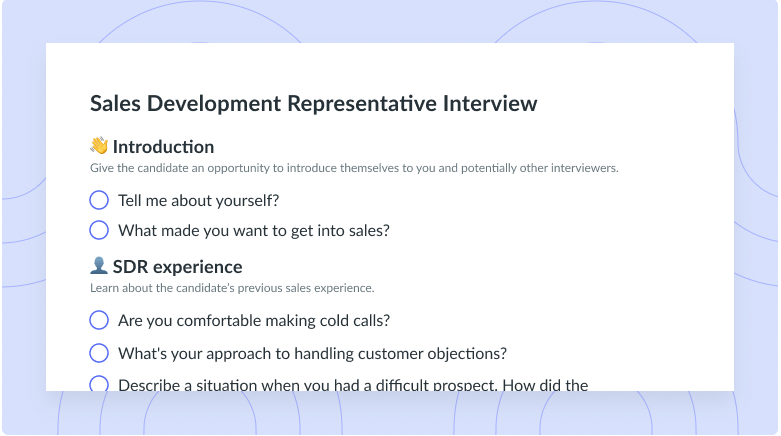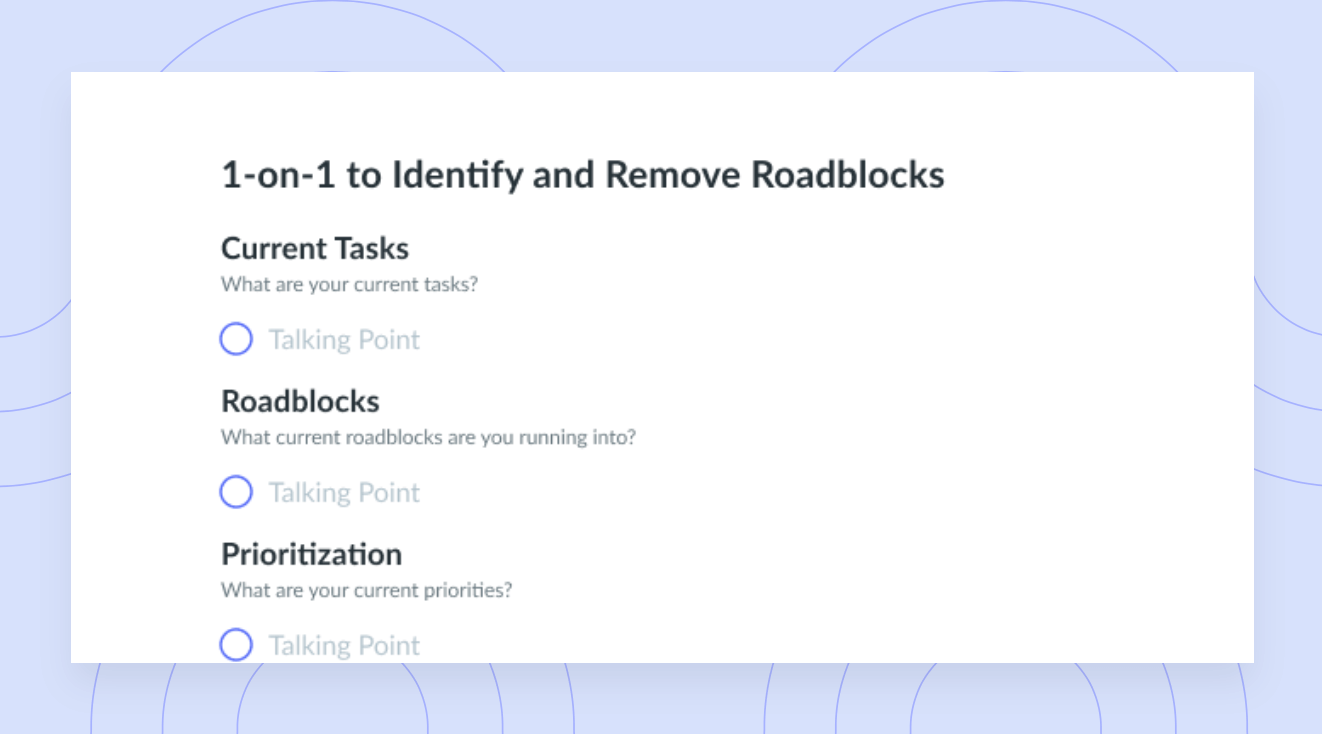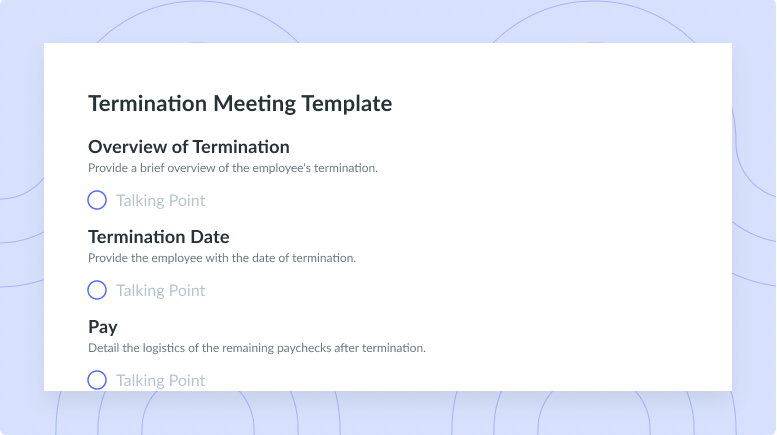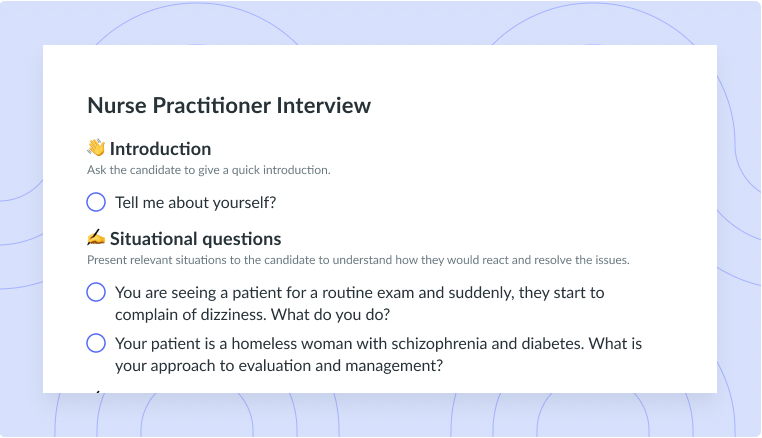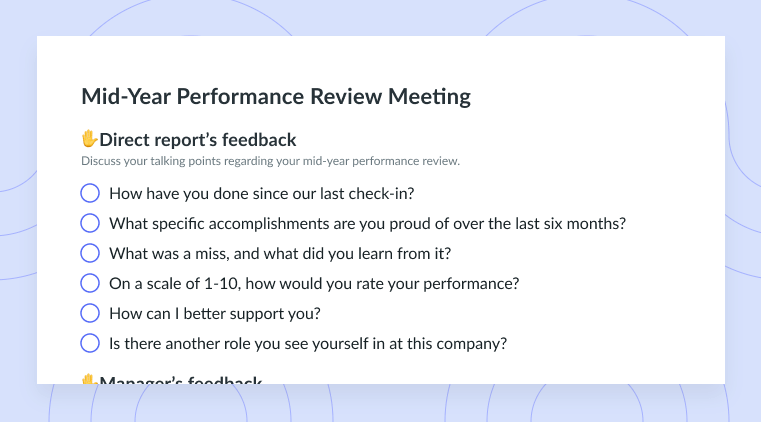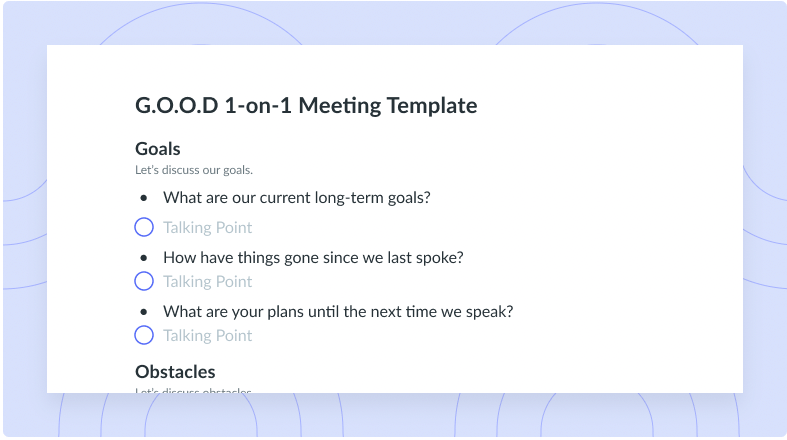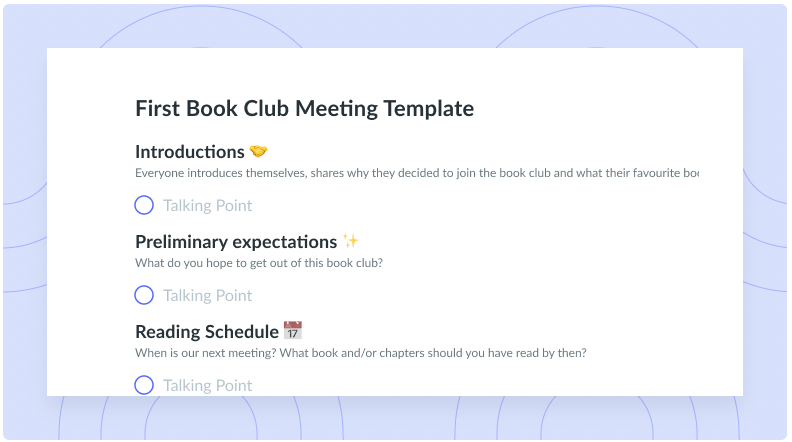How to Not Burn Bridges When Leaving a Job: 10 Helpful Tips
Leaving your position on bad terms can be bad for your future career prospects. Get helpful tips on leaving your job without burning bridges.
Your first job isn’t likely to be your last. Most likely, you’ll enter and exit a bunch of positions until you find the one that’s best for you. Leaving for greener pastures isn’t something to be ashamed of; it’s expected eventually in most cases.
However, that doesn’t mean you should sever your ties on the way out. You never know what opportunities your former bosses and colleagues could afford you! Below, learn how not to burn bridges when leaving a job so you can keep those doors open in the future.
10 tips on how to not burn bridges when leaving a job
It’s ideal to leave a job on good terms, even if you feel the company didn’t treat you well – you never know when a reference will be helpful. Think about it like this: Sure, marching into your boss’s office to tell them you quit might sound cathartic. But that short-term release might come back to bite you. It’s an aggressive, totally unnecessary move that means you probably can’t get a reference from them. In the long run, it can hurt your future job prospects.
You can use the tips below to avoid burning any bridges that might end up burning you too.
- Don’t look for a new job on company time
- Tell your boss first
- Write a letter of resignation and set a final day
- Keep working until you leave
- Be honest
- Show appreciation
- Get some constructive criticism
- Stay in touch
- Respect company privacy
- Help the company prepare for your replacement
1Don’t look for a new job on company time
When you’re looking for a new job, don’t send out your resume while you’re on the clock. Using your on-the-job time to look for new opportunities is just a bad look. Additionally, your employer could legally fire you since you’re actively looking for new work. Getting fired is a black mark on your resume that often makes it harder to get hired in the future, so be careful here.

Exit interviews worth showing up to
A well-run exit interview will allow you to give and receive effective feedback with a collaborative agenda. Try using a tool like Fellow!
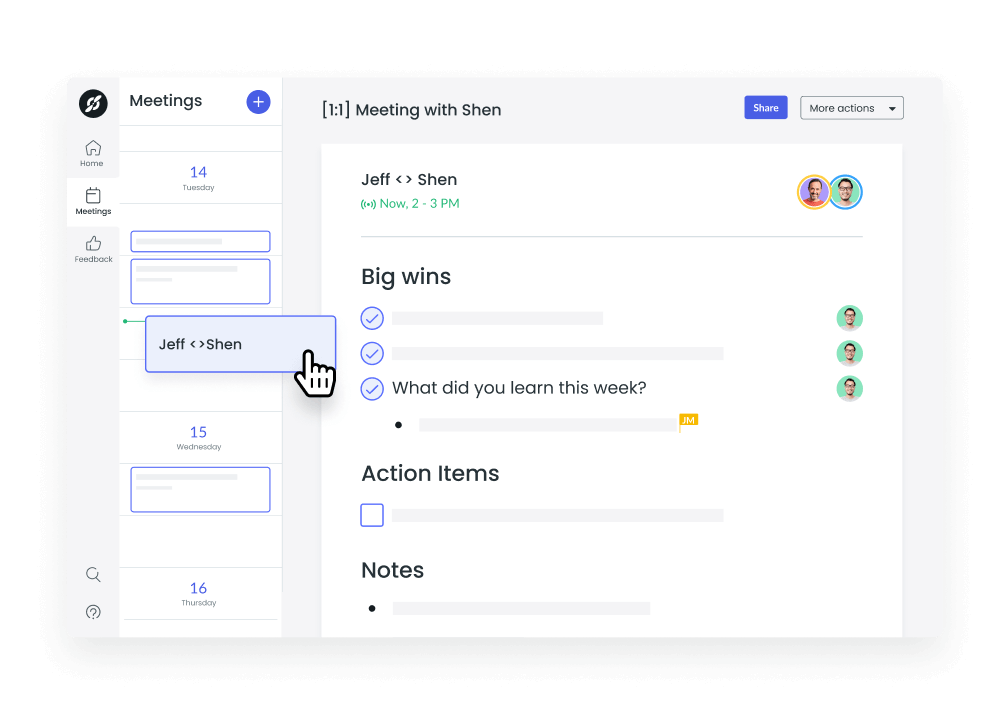
2Tell your boss first
Once your new position is set in stone, make sure to tell your boss that you’re leaving. It can be challenging to talk to a higher-up about your upcoming departure, but they’ll tell you how to best use your remaining time. Additionally, they’ll most likely set up an exit interview to discuss why you’re leaving and get feedback on how to improve. Your boss can also point you to HR for the rest of the employee exit process and share the news with your colleagues and clients.
3Write a letter of resignation and set a final day
Your letter of resignation does a lot of work to maintain the connections you’ve made in your current position. It’s a formal document that officially informs the organization that you’re leaving, but you can also use it as a thank-you letter. Showing gratitude for the job you’re leaving can keep the door open for future ones.
4Keep working until you leave
Don’t let the responsibilities of your current position fall to the wayside because you’ve found something new. Remaining professional means helping your old organization stay on track until it can find your long-term replacement. Doing that is also a great way to maintain your connections.
5Be honest
While it’s important to stay hush-hush about your job search, it’s usually okay to share with your coworkers when you have something locked in. Sure, you don’t necessarily have to tell them anything. But realistically, your colleagues will most likely find out at some point, and keeping it a secret could damage the great relationships you’ve developed. Being open and honest about leaving your job can help you preserve those connections well into your future.
6Show appreciation
Tact is key in your final days in your current role. Even in less-than-ideal working environments, expressing gratitude for the opportunity and appreciation for your former colleagues goes a long way. There are a few ways to do this, and it doesn’t have to be anything extravagant. One tried-and-true method is delivering a personalized thank-you note to your manager and anyone else who might’ve helped you out on the job.
A little appreciation can ensure that you don’t leave a position on a sour note. But you shouldn’t feel pressured to do anything for leadership that’s acting hostile about your departure. Maybe don’t burn the bridge, but there’s no need to do any repair work on it either.
7Get some constructive criticism
Getting feedback from your boss may seem strange while you have one foot out the door, but it has a few benefits. For one, you’ll have an idea of what they’ll say about you if a future position requires a reference from a previous employer. It also doesn’t hurt to get an idea of your weaknesses so you can improve on them and do even better in your new role.

8Stay in touch
As with any relationship, the key to maintaining your network is semi-regular communication. It’s easy to lose touch with former colleagues once you no longer meet face-to-face regularly. But staying in touch helps keep those relationships alive while keeping you and your friendly personality fresh in their minds. This can open the doors for new career opportunities that might not have come your way otherwise.
9Respect company privacy
If you have access to sensitive information at your current job, it’s best to keep it to yourself. Sharing confidential information is unprofessional at best and outright criminal at worst. Your company could take legal actions against you – loose lips can truly sink ships – and that’s not a position you want to be in. Additionally, spilling the beans can tell hiring managers that you’re not trustworthy.
10Help the company prepare for your replacement
As you prepare to leave your current company, your organization will work behind the scenes to find a suitable replacement. You generally don’t need to be involved in this part of the process, but your knowledge about your role and its responsibilities can help speed up the search. The scramble for a new employee can be stressful for managers, so helping ease that process for a smooth transition can leave a good impression.
Things to consider when leaving a job
The above tips can help everything go smoothly as you’re leaving a job. So too can the below things to consider.
- Give at least two weeks’ notice
- Collaborate with your boss
- Don’t be dishonest or overly secretive
- Don’t overshare during your exit interview
1Give at least two weeks’ notice
There are employees out there who view two weeks’ notice as more of a formality and quit by simply not showing up the next day. That couldn’t be further from the truth. A two-week notice gives your organization enough time to find a replacement. It also gives the human resources department enough time to fill out all the proper paperwork. It’s such an important part of the process that skipping this step can prevent future employer references and hurt your chances of finding another job.
2Collaborate with your boss
Informing your boss that you’re leaving can be a nerve-wracking experience, especially since you never really know how they’ll react. But, telling them is better than keeping it to yourself – collaborating with your boss can help you go through the exit process the right way. They can tell you which people to talk to and which paperwork to complete, and they can help you inform your teammates.
3Don’t be dishonest or overly secretive
Sooner or later, it will come out that you’re looking for – or have found – a new job. Of course, being slightly secretive about the initial job search is par for the course – you don’t want to be fired before finding something.
After finding a job, keeping it close to the vest isn’t as necessary. Hiding that fact from your boss and colleagues until the last minute can damage your reputation in their eyes, potentially losing you valuable connections.
4Don’t overshare during your exit interview
Since organizations use exit interviews to determine why team members are leaving the company, they often expect at least some feedback. However, that doesn’t mean you should use exit interviews solely to vent about workplace frustrations. For one, spilling out too many problems at once can make feedback seem more like complaining, so pointing out every flaw isn’t productive. Second, there’s no guarantee that what you say stays between you and your boss – you could end up burning bridges with your teammates.
Try this free exit interview template:
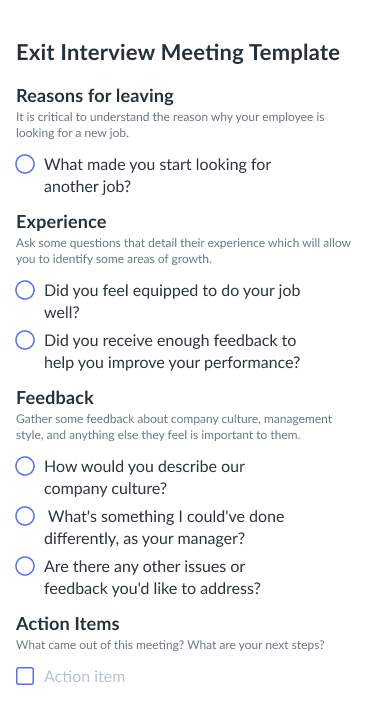
Keep your bridges intact
Leaving a job is a difficult process that involves a wide range of emotions you might feel up until your final day. It’s a balancing act of collaboration, secretiveness, and transparency that can be hard to manage at times. But it’s certainly not impossible, especially when your boss is ready to help you at every step of the way.
Leaving a company can often involve a lot of meetings, and Fellow can help each one go smoothly. Fellow is a professional meeting program that can help you and your boss collaboratively plan meeting agenda items, take detailed notes, and share feedback in real-time. With Fellow and your supervisor’s advice, the exit process can go off without a hitch.









